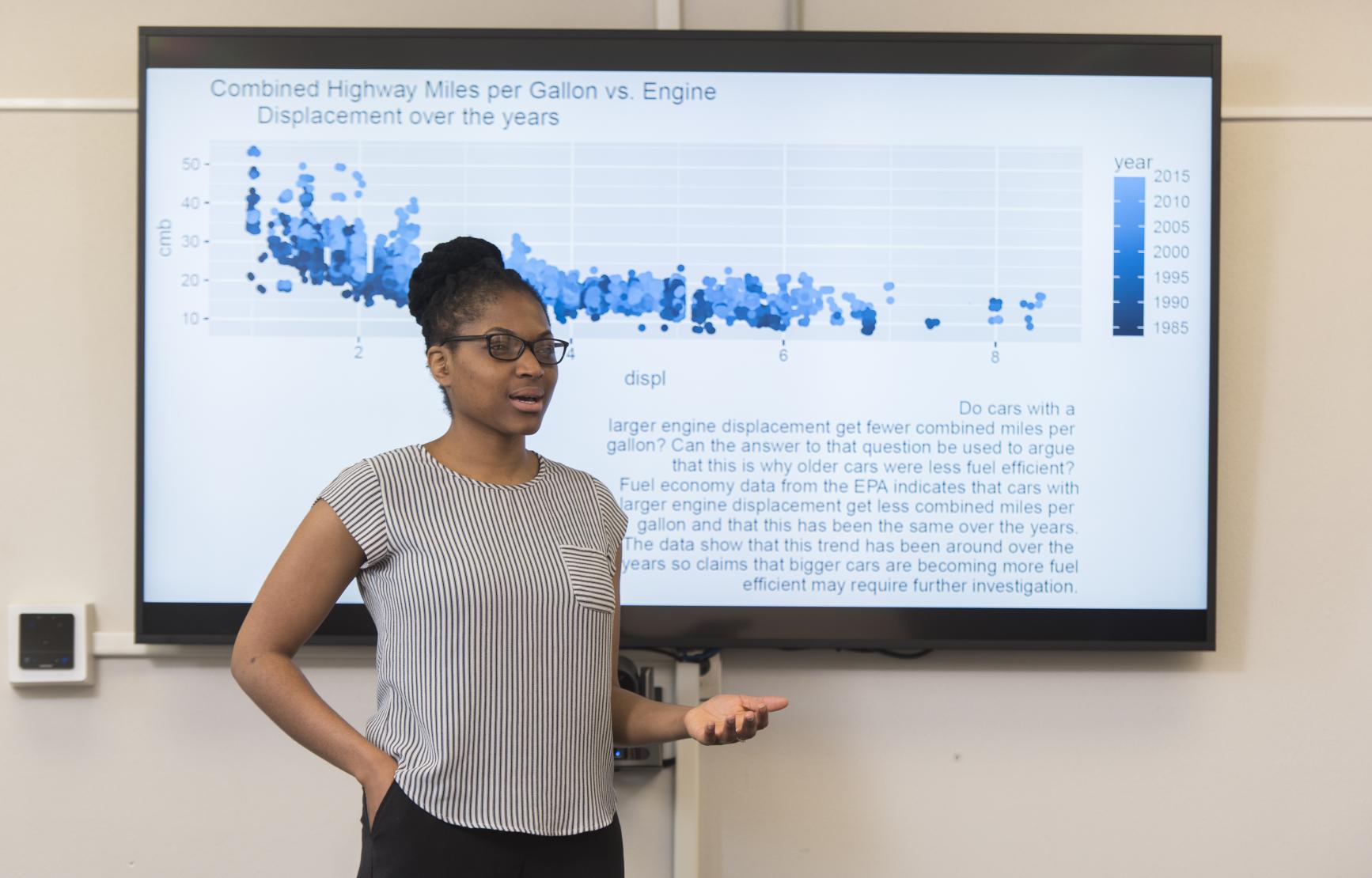As a graduate student in statistics, you have wide-ranging options and can tailor your program to your background and interests. We hope that during your time in our department, we are able to provide the training and resources to make you successful, both as a student and in your future career.
Statistics M.S. and Ph.D. Students
Resources for current students

"Working as a GTA has been one of the most beneficial parts of my graduate education. I have been positively influenced by the instructors and students and have grown in professionalism, pedagogy and content knowledge." Njesa Totty, a former Ph.D. graduate student, now an assistant professor at Framingham State University.
Statistics graduate student guidebook
Our graduate student handbooks provide a detailed guide to the organization, policies and procedures of our statistics graduate degree programs. Look here to review information including department policies, financial aid resources and program requirements.
Academics
All students are governed by the academic regulations, which appear in OSU’s General Catalog and Schedule of Classes. These regulations cover such things as how to register, how to add and drop classes, and the university's grading system.
Student life
In addition to rigorous academic pursuits, statistics graduate students have opportunities to engage in a rich range of activities at Oregon State, including graduate appreciation, student clubs, research talks, workshops, travel and conferences, and diverse outreach experiences.
Add concurrent major
Did you know: If you are enrolled in any other graduate program at OSU you can apply for a concurrent degree in statistics?
Statistics Ph.D. learning objectives/outcomes
- Graduates will be able to communicate the major tenets of statistics, explain their work orally and identify areas of future research areas in statistics.
- Graduates will have passed the comprehensive written exams at a superior level based on a summary of required coursework.
- Graduates will have designed, carried out and presented an original work of research at the leading edge of the statistics discipline.
- Graduates will be able to identify and articulate strategies for dealing with ethical issues that may arise.
Statistics M.S. learning objectives/outcomes
- Graduates will be able to understand basic theoretical and applied principles of statistics with adequate preparation to pursue a PhD or enter the job force as an applied statistician.
- Graduates will have passed the comprehensive written exams based on a summary of required coursework.
- Graduates will have presented a summary of a research project [non-thesis coursework].
- Graduates will be able to identify areas where ethical issues may arise in statistics.



